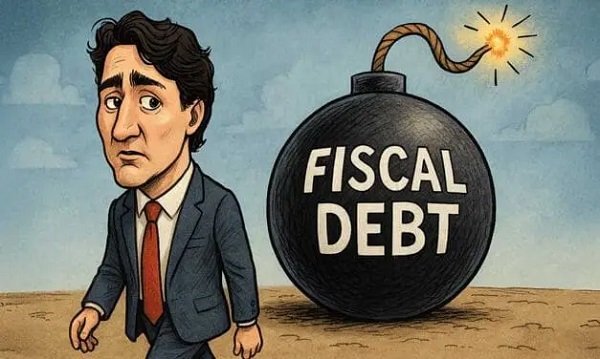Daily Caller
Energy Will Play A Vital Role In Any Deal To End Russia’s War With Ukraine


From the Daily Caller News Foundation
With President Donald Trump’s Alaska summit with Russian President Vladimir Putin now in the rear-view mirror, the question becomes what, if anything, was agreed to related to the war in Ukraine.
In his post-meeting interview with Fox News host Sean Hannity, President Trump indicated that he and Putin agreed on many aspects of what an ultimate settlement might look like, setting the stage for a second meeting to include Ukrainian President Volodymyr Zelenskyy in the coming weeks.
Indeed, Mr. Trump spent the entire 7-hour flight back to the nation’s capital on a series of calls with Zelenskyy and other European leaders, already focused on ensuring the follow-up meeting happens and is productive. On their one-on-one call, the New York Times reports that Zelenskyy committed to traveling to Washington, D.C. on Monday for a face to face meeting with President Trump.
As a nonprofit, we are dependent on the generosity of our readers.
Please consider making a small donation of any amount here.
Thank you!
Trump already executed a big hit on Russia’s economic future by insisting on a pledge from the EU countries to purchase $750 billion in U.S. oil production in the years to come as part of the framework for a comprehensive trade deal. Those volumes would displace hundreds of billions of dollars’ worth of crude that would have been purchased from Russia instead.
When pressed by Hannity on the question of secondary sanctions hitting India and China, the President said, “Because of what happened today I don’t think I have to think about that right now,” adding, “I might in a few weeks, but not now.”
In an interview with Fox’s Bret Baier conducted on Air Force One on the flight from Washington, D.C. to Anchorage, President Trump indicated India had already stopped buying Russian crude, saying, “Well he (Putin) lost an oil client, so to speak, which is India, which is doing about 40% of the oil.”
That was a reference to the fact that India’s state-owned refineries halted their large spot purchases of Russian crude as of July 28, after Mr. Trump threatened to hit that country with an additional 25% tariff. However, private refineries owned by companies like Nayara Energy and Reliance Industries have continued buying Russian oil under long-term contracts. So, there is leverage still to be had related to India.
As negotiations on a potential global settlement of the Russia/Ukraine war continue in the coming weeks, the possibility remains for other energy-related issues to play a role. One example relates to exploration of vast reserves of oil known to exist beneath the Arctic region, where Russian companies have gained a great deal of expertise in dealing with the harsh conditions in recent years. President Trump has hinted at the possibility of allowing Russian companies to partner with American companies on oil projects across that region, and in the Bering Sea, where Russia and Alaska come within a few miles of one another.
Such joint operations would not be unprecedented or even unusual. Before Putin’s invasion of Russia, western companies like ExxonMobil, Chevron, and Shell were engaged in a variety of joint projects with Russian oil companies. Indeed, such joint operations have been carried out in many regions of the world for many decades.
Though largely unexploited, Ukraine’s own energy wealth could also be used as part of the negotiations. Ukraine is known to be rich in energy minerals, including large stores of lithium, titanium, graphite, uranium, oil and natural gas. A good portion of those resources lie beneath the Donbass region, one of Putin’s main war objectives. The country’s reserves of both coal and uranium rank among the largest on earth.
Oil and energy considerations have always played a role in the starting and settling of wars in modern times, because energy security is national security. The array of such matters swirling today shows the Russia/Ukraine conflict is no different.
David Blackmon is an energy writer and consultant based in Texas. He spent 40 years in the oil and gas business, where he specialized in public policy and communications.
Daily Caller
Nigeria Would Welcome US Intervention In Massacre Of Christians By Islamic Terror Groups


From the Daily Caller News Foundation
Nigeria said Sunday the country would welcome American intervention against Islamic extremist groups behind the massacre and persecution of Christians in the African nation.
Daniel Bwala, advisor to Nigerian President Bola Tinubu, told Reuters Sunday the country would welcome U.S. intervention to combat Islamic terrorists persecuting and massacring Christians within its borders, as long as Nigeria’s sovereignty was respected. President Donald Trump threatened Saturday on Truth Social to deploy U.S. forces in Nigeria if the nation did not do enough to stop Islamic terrorist organizations like Boko Haram.
“We welcome U.S. assistance as long as it recognizes our territorial integrity,” the advisor told Reuters.
Dear Readers:
As a nonprofit, we are dependent on the generosity of our readers.
Please consider making a small donation of any amount here.
Thank you!
Trump also threatened in his post to cut off aid to the nation in response to massacres of Christians. Open Doors, which tracks Christian persecutions worldwide, estimates that 3,100 Nigerian Christians have been killed so far in 2025, making up a large portion of the estimated 4,476 Christians murdered worldwide this year alone.
“If the Nigerian Government continues to allow the killing of Christians, the U.S.A. will immediately stop all aid and assistance to Nigeria, and may very well go into that now disgraced country, “guns-a-blazing,” to completely wipe out the Islamic Terrorists who are committing these horrible atrocities,” Trump said on Saturday. “I am hereby instructing our Department of War to prepare for possible action.”
Boko Haram is the most prominent Islamic terrorist organization in the nation, being responsible for a years-long campaign of targeted attacks against Christians, especially in the northern region of the country.
Business
Canada is still paying the price for Trudeau’s fiscal delusions

This article supplied by Troy Media.
 By Lee Harding
By Lee Harding
Trudeau’s reckless spending has left Canadians with record debt, poorer services and no path back to a balanced budget
Justin Trudeau may be gone, but the economic consequences of his fiscal approach—chronic deficits, rising debt costs and stagnating growth—are still weighing heavily on Canada
Before becoming prime minister, Justin Trudeau famously said, “The budget will balance itself.” He argued that if expenditures stayed the same, economic growth would drive higher tax revenues and eventually outpace spending. Voila–balance!
But while the theory may have been sound, Trudeau had no real intention of pursuing a balanced budget. In 2015, he campaigned on intentionally overspending and borrowing heavily to build infrastructure, arguing that low interest rates made
it the right time to run deficits.
This argument, weak in its concept, proved even more flawed in practice. Postpandemic deficits have been horrendous, far exceeding the modest overspending initially promised. The budgetary deficit was $327.7 billion in 2020–21, $90.3 billion the year following, and between $35.3 billion and $61.9 billion in the years since.
Those formerly historically low interest rates are also gone now, partly because the federal government has spent so much. The original excuse for deficits has vanished, but the red ink and Canada’s infrastructure deficit remain.
For two decades, interest payments on federal debt steadily declined, falling from 24.6 per cent of government revenues in 1999–2000 to just 5.9 per cent in 2021–22—thanks largely to falling interest rates and prior fiscal restraint. But that trend has reversed. By 2023–24, payments surged past 10 per cent for the first time in over a decade, as rising interest rates collided with record federal debt built up under Trudeau.
Rising debt costs are only part of the story. Federal revenues aren’t what they could have been because Canada’s economy has stagnated. High immigration, which drives productivity down, is the only thing masking our lacklustre GDP growth. Altogether, Canada was 35th among 38 countries in the Organization for Economic Co-operation and Development (OECD) for per capita GDP growth from 2014 to 2022 at just 0.2 per cent. By comparison, Ireland led at 45.2 per cent, followed by the U.S. at 20.8 per cent.
Why should a country like Canada, so blessed with natural resources and knowhow, do so poorly? Capital investment has fled because our government has made onerous regulations, especially hindering our energy industry. In theory, there’s now a remedy. Thanks to new legislation, the Carney government can extend its magic sceptre to those who align with its agenda to fast-track major projects and bypass the labyrinth it created. But unless you’re onside, the red tape still strangles you.
But as the private sector withers under red tape, Ottawa’s civil service keeps ballooning. Some trimming has begun, rattling public sector unions. Still, Canada will be left with at least five times as many federal tax employees per capita as the U.S.
Canada also needs to ease its hell-bent pursuit of net-zero carbon emissions. Hydrocarbons still power the Canadian economy—from vehicles to home heating—and aren’t practically replaceable. Canada has already proven that chasing net zero leads to near-zero per capita growth. Despite high immigration, the OECD projects Canada to have the lowest overall GDP growth between 2021 and 2060.
The Nov. 4 release of the federal budget is better late than never. So would be a plan to grow the economy, slash red tape and eliminate the deficit. But we’re unlikely to get one.
Trudeau may be gone, but his legacy of fiscal recklessness is alive and well.
Lee Harding is a research fellow with the Frontier Centre for Public Policy.
Troy Media empowers Canadian community news outlets by providing independent, insightful analysis and commentary. Our mission is to support local media in helping Canadians stay informed and engaged by delivering reliable content that strengthens community connections and deepens understanding across the country
-

 Business1 day ago
Business1 day agoTrans Mountain executive says it’s time to fix the system, expand access, and think like a nation builder
-

 International1 day ago
International1 day agoBiden’s Autopen Orders declared “null and void”
-

 MAiD1 day ago
MAiD1 day agoStudy promotes liver transplants from Canadian euthanasia victims
-

 Business1 day ago
Business1 day agoCanada has given $109 million to Communist China for ‘sustainable development’ since 2015
-

 Internet2 days ago
Internet2 days agoMusk launches Grokipedia to break Wikipedia’s information monopoly
-

 Business1 day ago
Business1 day agoCanada’s combative trade tactics are backfiring
-

 Business1 day ago
Business1 day agoYou Won’t Believe What Canada’s Embassy in Brazil Has Been Up To
-

 Automotive1 day ago
Automotive1 day agoCarney’s Budget Risks Another Costly EV Bet






